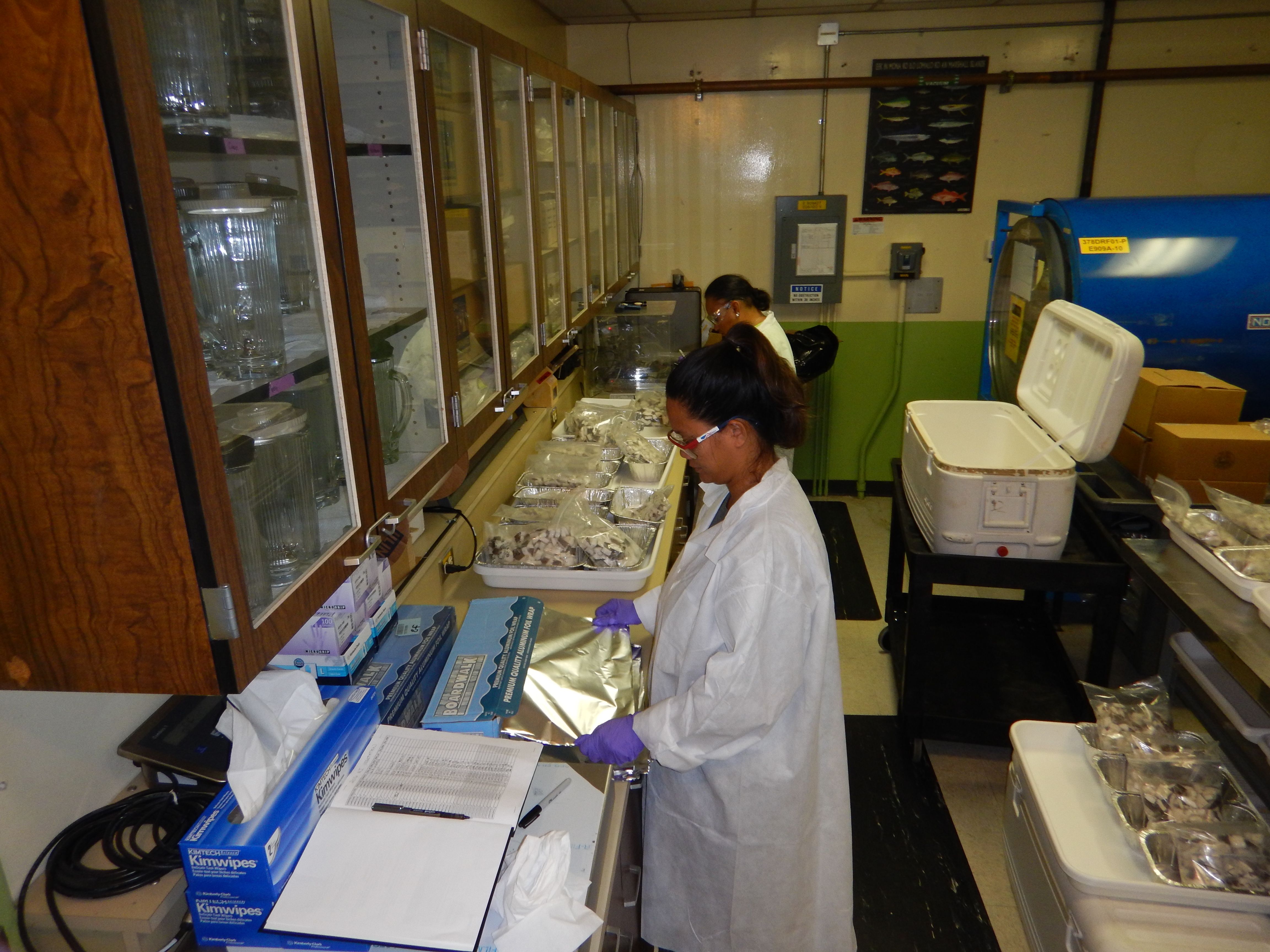
A two-week fellowship was conducted to acquire skills on the introductory of radiological assessment through laboratory and web-based training at the Lawrence Livermore National Laboratory in Livermore, California. The laboratory training included initial preparation of vegetation and fish samples from Utirik, Rongelap, Bikini and Enewetak atolls. Sample preparation included sample dissection, weighing and ashing of samples. Other preparatory methods also include Freeze Drying operations; Sample homogenization of vegetation; Canning of sample materials for gamma spectrometry; Observing how to analyse water, juice and other fluids for measuring of cesium isotopes; and most importantly practicing Laboratory Safety. Computer based training was a crucial part of this fellowship and it was mandatory to pass each course in order to advance to the next level. The passing of the following courses resulted in achieving a Radiological Technician I certification. These included:
Radiological Worker Training
General Employee Training
Chemical and Laboratory Safety
Lead Awareness
Health Hazards Communication for Supervisors
Personal Protective Equipment
Contamination Control
Waste Management Overview
Beryllium Awareness.
Radiological Worker Training
General Employee Training
Chemical and Laboratory Safety
Lead Awareness
Health Hazards Communication for Supervisors
Personal Protective Equipment
Contamination Control
Waste Management Overview
Beryllium Awareness.
The sample preparation part of the training went smoothly as this activity is part of our job duties. As for the lab and computer courses, it was very fruitful to acquire new skills and learn the radiation terminologies. The health and safety aspect of this training gave us a glimpse of what is needed and vital within our work environment. Apart from gaining knowledge, skills acquired include: operating lab equipment such as freeze dryer and a canning machine. A significant issue that brought to our attention is that all lab equipment and materials must be calibrated preceding any lab work to assure that lab equipment give accurate readings. Occupational health and safety is highly important in our work space.

